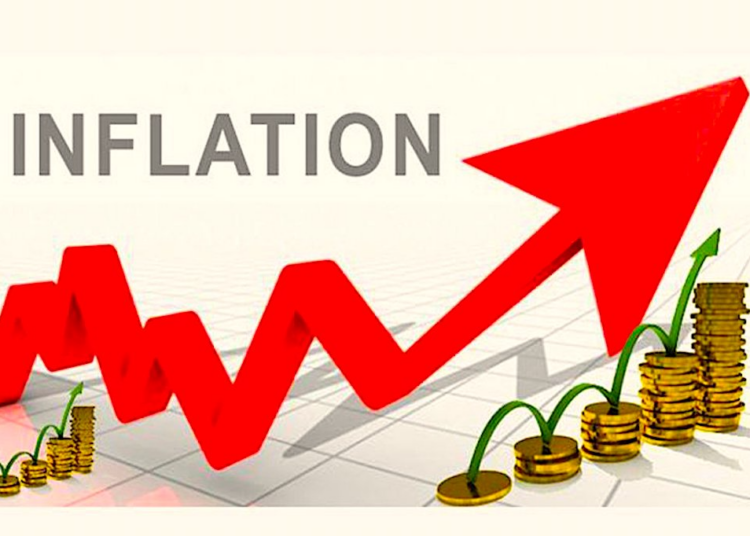As it stands, the federal government would need to ensure the coordination of monetary and fiscal policies with a focus on restoring value to the system and reducing inflation; a step, economic experts say is critical for the economy to recover and witness sustainable growth.
Those who belong to that school of thought base their argument on the fact that economic growth should be higher than population growth for a meaningful impact on wealth and job creation across the board. The nation’s economy grew 2.54 per cent in the third quarter of 2023, according to the National Bureau of Statistics (NBS). CFG Advisory, Tilewa Adebayo, said in a 2024 economic review.
Most experts say the nation’s Gross Domestic Product (GDP) needs to be at least five per cent against the population growth rate put at about three per cent for sustainable economic growth. “If there is anything the government can do for us this year, let them reduce inflation,” CEO of Fitch Solutions projected that Nigeria’s real GDP growth will increase modestly to 2.9 per cent in 2024, up from 2.4 per cent in 2023.
Recent data released by the statistics bureau shows that the economy expanded by a modest 2.5 per cent year-on-year in Q3, 2023, unchanged from Q2.
There are indications that the new year may be better in terms of revenue generation and infrastructure financing. For instance, official data has shown that there was over a 130 per cent increase in Federation Account Allocation Committee (FAAC) revenue since the removal of fuel subsidy, indicating that there would be more revenues to all the tiers of government to finance the 2024 budget.
Even though analysts have pointed out that despite the increase in FAAC allocation, the value of the Naira has been eroded by exchange rate depreciation and anticipated increase in states’ foreign currency debts.
Nigeria spent $10 to $15 billion annually on gasoline subsidies before its eventual removal by the current administration in May 2023. If the post-subsidy era is well managed, that amount would be saved for fiscal deficit financing.
There is going to be N10 trillion deficit in the 2024 budget raising concerns about how the government will be able to fund the budget in the new year. Nigeria’s national debt stood at N87.91 trillion according to the Debt Management Office.
Experts believe that the government should find a way to reduce the interest on Ways and Means from 20 per cent to three per cent to also cut down on the deficit in the budget through amendment of the Fiscal Responsibility Act. The Ways and Means is currently N30 trillion.
Interest rate is expected to go up higher in the first quarter to half of 2024 to tame inflation and attract foreign investments. “We need a high interest rate over the next six months to tame inflation,” Adebayo said, adding: “Not only do we need to restore our economy, but need to build the buffers for the economy.”
The operational start of the Dangote refinery in Q1 2024 aside from the possible takeoff of the federal government-owned Port Harcourt refinery is expected to lead to a sharp reduction in imports and increase the country’s trade surplus, providing tailwinds to economic growth.
However, like many economic watchers, Fitch believes that domestic demand will remain weak in 2024. “High inflation, tight financial conditions, and fiscal constraints will continue to weigh on consumption and fixed investment,” the rating firm rightly said.
Nigeria’s economic chaos of uncertainty, stagflation that hinders growth, high cost of energy and scarcity of petroleum products, exchange rate confusion and a ground manufacturing sector are some of the issues many think should be dealt with.
However, there is hope that value is going to be returning to the local economy based on the fact that the global economy is recovering. But the domestic headwinds seem to be more mountainous now than ever.
“It’s important that our revenue profile changes and we must have structural reforms in place,” says economic analyst Stephen Kanabe. He and others say government spending must be properly checked to deal with inflation and wastage in 2024.
Nigeria’s industrial policies have not been updated for many years thereby affecting the manufacturing sector and local manufacturers, a reason experts are calling for a review of the industrial policies to avoid further job loss. The explanation is that the parallel movement of the industrial, monetary and fiscal policies was responsible for the poor business environment in Nigeria.
For Nigeria to restore value to the system and reduce inflation, it would need to see through its reform policies this year which many say could begin to have an impact by next year. “It’s important that they begin to implement policies forthwith,” said Kanabe.
Not a few people believe that Nigeria must die with the two major problems of ubiquitous insecurity and poor power supply to attract private investment. That is why it remains to be seen if the mouthed policy reform initiatives of the present administration would help to drive economic growth.
Explainer:
Inflation rates and exchange rates can be influenced by various factors, including government policies, global economic conditions, and domestic factors. It’s crucial to monitor inflation as it affects the purchasing power of consumers, and exchange rates are significant for international trade.
The Central Bank of Nigeria typically implements policies to control inflation and stabilize the exchange rate. However, external factors like global oil prices and geopolitical events can impact these indicators.
Nigeria’s economy is significantly influenced by the oil sector. The pros include revenue generation, export earnings, and government income. However, the cons include vulnerability to global oil price fluctuations, environmental concerns, and the need for economic diversification.
Efforts to diversify the economy away from oil dependence are ongoing. Policies supporting sectors like agriculture, manufacturing, and services aim to reduce the country’s vulnerability to oil price volatility.
The supply chain in Nigeria is diverse, covering agriculture, manufacturing, and services. Agriculture has great potential, but challenges such as infrastructure limitations and inconsistent policies need addressing.
The manufacturing sector can benefit from policies promoting industrialisation and local production. Services, including technology and finance, are areas with high growth potential.
Nigeria has been working to improve its investment climate by implementing reforms to ease doing business. Investors are attracted to sectors beyond oil and gas, including agriculture, technology, and renewable energy.
Key factors for a positive investment climate include political stability, policy consistency, infrastructure development, and regulatory transparency.





